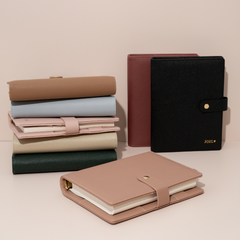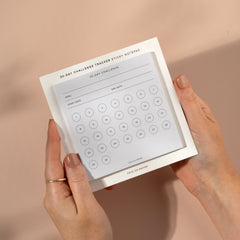These 7 Japanese concepts offer exactly that: timeless, quietly revolutionary philosophies that can gently reshape the way you live, work, and feel.
Philosophies that remind you it’s not always about chasing productivity or hacking happiness. Instead it teaches you to find meaning, embrace imperfection, and make space to simply be.
If you’ve been craving a life that feels more balanced, intentional, and rooted in calm, these ideas might just make you feel better from the inside out.
The most profound shifts don’t come from doing more, they come from thinking differently.
From embracing imperfection to finding joy in the ordinary, the 7 Japanese concepts below offer something rare in modern culture: grounded wisdom that speaks to your soul and helps you create a life with more intention and calm.
1. Ikigai – Your Reason for Being
(“iki” – life, “gai” – worth)
Ever asked yourself, “What’s my purpose?” Ikigai might just be your answer. It’s not a grand, overwhelming purpose that shouts from the rooftops. Instead, it’s your quiet “why”—the sweet spot where what you love, what you’re good at, what the world needs, and what you can be paid for intersect.
Finding your ikigai doesn’t happen overnight. It’s about daily reflection, curiosity, and giving yourself permission to explore your passions without pressure. Whether it’s through work, hobbies, or relationships, ikigai gives life direction, and yes it can make you feel better simply by knowing you’re moving toward meaning.
Try this: Spend 10 quiet minutes journaling what makes you feel alive. Not what looks good on paper what truly lifts your spirit.

2. Wabi-Sabi – Beauty in Imperfection
The obsession with perfection is exhausting. Wabi-sabi invites us to breathe. It celebrates the imperfect, the aged, the weathered. It’s the chipped mug that holds your favourite tea. The handwritten note with smudges. The life that doesn’t look perfect on Instagram, but feels whole in real time.
In embracing wabi-sabi, you start to let go of the unrealistic standards you’ve placed on yourself. It’s a gentle reminder that messiness is human and beautiful.
Subtle shift: Instead of fixing flaws, try noticing the story they tell. That cracked bowl? It’s lived a life. So have you.
3. Shinrin-Yoku – Forest Bathing
Not a bath in the literal sense but a soul-deep soaking in nature. Shinrin-yoku is the practice of immersing yourself in the atmosphere of the forest, engaging all five senses as you do.
Studies show this practice reduces cortisol levels, lowers blood pressure, and lifts mood. But beyond the science, there’s something deeply primal about it. No screens. No deadlines. Just trees, air, birdsong and you.
Can’t get to a forest? A walk in the park, barefoot moments in your garden, or simply sitting under a tree can offer microdoses of shinrin-yoku.
Here’s a powerful external guide to forest bathing from National Geographic to help you get started.
4. Kaizen – Continuous Improvement
Kaizen is about small steps. Not leaps. Not revolutions. Tiny, consistent actions that build real change over time. It’s how Japanese businesses transformed themselves post-WWII, and how you can transform your life without feeling burnout.
Want to eat healthier? Start by adding one veggie to your plate. Want to write a book? Write 100 words today. Improvement, not perfection, is the goal.
Why it works: Your brain loves momentum. Small wins build motivation. And you begin to trust yourself again.
5. Kintsugi – The Art of Repair
Kintsugi is the art of mending broken pottery with gold, silver, or platinum, making the cracks a feature, not a flaw. Imagine applying that to your life.
Instead of hiding scars, Kintsugi celebrates them. Reminding us that healing can create something even more meaningful than what was before.
One that says: your pain isn’t proof you’ve failed; it’s proof you’ve lived. The heartbreaks, mistakes, and messy chapters? They’re not things to cover up. They’re gold-lined seams that show your strength.
The mindset shift: Your scars are part of your story. Wear them with pride. Healing doesn’t erase the past; it reframes it.

6. Gaman – Enduring with Patience and Dignity
In times of stress or loss, gaman reminds you to stay resilient. Not through denial but through quiet strength. It’s the kind of dignity that says, “This is hard, but I will endure it with grace.”
It’s a concept that can guide you through life’s messier chapters, especially when things feel beyond your control.
Real talk: Gaman doesn’t mean bottling things up. It means choosing to carry your struggle with courage, while allowing space for compassion especially for yourself.
7. Oubaitori – Don’t Compare Yourself to Others
This one’s a lifesaver in the age of constant comparison. Oubaitori (pronounced oh-buy-toh-ree) draws from four flowering trees that bloom in their own time. Just as cherry, plum, peach, and apricot trees bloom in their own time, so do we. Each is beautiful. Each is different. None rushes to bloom like the other.
In a world that wants you to hustle and match everyone else's timeline, oubaitori says: you are not behind. You are on your own path. And that path is valid—even if it looks different.
Let this be your mantra: I am allowed to grow at my own pace.
Let the 7 Japanese Concepts Make You Feel Better
You don’t need to change everything overnight. These 7 Japanese concepts offer a quiet, nourishing way to reconnect with yourself, with the present moment, and with what truly matters. Each one has the potential to make you feel better, not by doing more, but by doing differently.
So the next time life feels noisy or heavy, come back to this list. Maybe even pick one concept a week to reflect on.
Because a calm, purpose-driven life isn’t something you have to chase. You can start living it today.


Leave a comment